By Sam seog Ko
Distinguished Professor, College of AI Convergence, Dongguk University
Former Commissioner of KCC(Korea Communications Commission)
The global streaming service Netflix is rapidly changing the media market. Especially during the corona pandemic, media experts' prediction that "streaming services will replace existing live broadcasts" has been confirmed as a fact beyond prediction.
Netflix is acting as a game changer, disrupting the existing media market order and reorganizing the media market. If Netflix was initially a complement to legacy media such as terrestrial broadcasting and cable television, it is now clearly identifying itself as a replacement.
As is well known, the core of Netflix's growth strategy is the CTS model. It's a mix of content (C), technology (T), and subscriptions (S). The company is fundamentally reshaping the media market by innovating its business model to acquire subscribers through a combination of original content and advanced technology.

Of the three factors that have driven Netflix's growth, technology has played the biggest role in making the "global media empire" it is today. From its personal recommendation system and purchase maximization strategy based on big data, to its open platform strategy and optimized UI/UX, to its original content creation, Netflix is undoubtedly the world's leading content company and the most powerful "media tech" company.
Advancements in media technology have dramatically changed not only the form of content, but also the way people consume media, and ultimately the makeup of the media market. In fact, it is no exaggeration to say that the history of media companies is the history of the development of media technology. From print to radio to TV, from black-and-white to color TV, from analog to digital broadcasting, media companies have risen and fallen. Media companies have been no exception to the "survival of the fittest" principle, where those who adapt to media technology advances survive and those who don't are driven out of the market.

The Consumer Electronics Show (CES), held every January in Las Vegas, U.S., attracts the world's attention as the "world's largest IT show" that introduces cutting-edge technologies related to media and content as well as information and communication. It is the first place to see cutting-edge media and content technologies, from those on the verge of commercialization to the unveiling of productized and serviced technologies. During CES2024, C Space, an exhibition space for media and content companies, was packed with exhibitors and visitors from around the world.
Trends in media and content are highlighted by on-site seminars in C Space and new products and technologies unveiled by exhibitors on the main show floor at the Las Vegas Convention Center (LVCC). Let's summarize some of the media and content trends we saw at CES2024 and what they mean for media and content companies and how to respond.

First, we saw the proliferation of artificial intelligence (AI) technologies, including generative AI, across all industries, including media and content. The Consumer Technology Association (CTA), which organizes CES, announced five key agendas for CES2024 before the event began: AI, mobility, food and ag tech, health and wellness tech, and sustainability and human security. But AI dominated the show, with CES2024 being described as "starting with AI and ending with AI.
The Digital Hollywood session, known for its seminars covering the latest issues in media and content, was the first to identify AI as a major keyword for the entertainment, media, and content industry in 2024. The day before CES2024 opened, Digital Hollywood's seminar, "2024: The AI Inflection Point - Explosive Growth in Entertainment, Internet, and Media," explored the impact of AI on the media and content industry, including specific examples. "The use of AI will have the biggest impact on content creation since the Internet in the 1990s," said one commentator.
Since the advent of gen AI in late 2022, the adoption and application of AI in the industry has entered a new phase. In particular, the media and content industry believes that a major barrier to the use of AI has been removed as a result of the Hollywood actors' and writers' strike last year, which resulted in the creation of "basic guidelines for the use of AI in film and television production. From scriptwriting to filming and post-production, the use of AI to improve efficiency is now an inevitable reality. Moreover, the influence of AI on media users' content selection and consumption is expected to grow even more in the future.

Second, it is worth noting the revival or rediscovery of the 'idiot box' TV, which is undergoing technological evolution led by domestic home appliance companies. TV sets are the core devices of smart home and home entertainment, the technology categories of CES. At CES2024, Samsung and LG, the global TV market leaders, showcased state-of-the-art TV sets equipped with high-performance AI.
Samsung Electronics, which presented 'AI for All' as the main theme of the exhibition, explained that the function of the TV is not limited to providing a content consumption experience, but will play a central role in the 'AI home device' as an 'Intelligence Hub' in the home that connects and controls all devices in the home. At the same time, he emphasized that it will lead to the 'AI screen era' that provides a new way of life beyond the existing smart TV.

LG Electronics, which held the 'LG World Premiere' for the media one day before the opening of CES2024, redefined AI as 'Affectionate Intelligence'. "AI is one of the most essential elements to bring customer experience to a whole new paradigm," said Joo Ju-Wan, CEO of LG Electronics. At CES2024, LG Electronics showcased the world's first wireless, transparent OLED TV, which drew a lot of attention from attendees. The CTA, which organizes CES, honored LG Electronics with the only TV innovation award. Forbes, an American business magazine, said, "LG Electronics took CES2024 by storm with its transparent OLED TV."
Third, Samsung and LG's competition in AI TV technology is linked to their content strategies to attract new consumers or lock-in existing ones. At CES2024, Samsung Electronics unveiled its 2024 version of Tizen OS Home, a TV platform with significant performance improvements. LG Electronics also announced that it will significantly expand the content of its smart TV platform, Web OS, and strengthen its services.
Both companies used the CES event to signal their intention to launch FAST, an ad supported streaming TV that responds to OTT. FAST is likely to be the biggest game changer in the media and content market this year. According to market research firm Digital TV Research, the global FAST market is expected to grow from $8 billion in 2023 to $17 billion in 2029.
Samsung Electronics has recently been actively expanding the reach of its Tizen platform TVs. The company offers a total of more than 2,500 channels in 24 countries around the world. The Samsung TV platform already includes the three major broadcasters and CJ ENM. Tizen OS enables customized content recommendations for each account registered on the TV. We've also added content discovery categories. In addition, the company announced plans to expand content partnerships and expand VOD services to the highest level in the industry.
LG's webOS, which was first launched in 2014, currently offers more than 3,500 channels in 28 countries around the world. LG's TV platform, 'LG Channel', was upgraded to 'LG Channel 3.0' in September last year. The biggest feature is that the app structure has been greatly improved by completely reorganizing the layout based on the UI/UX of existing OTT services. As an extension of these efforts, LG Electronics announced its vision to change its identity from a home appliance manufacturer to a true "media & entertainment platform company" centered on webOS. This is a declaration of intent to not only collaborate with existing media and content platforms, but to compete with them in earnest.

Since the pandemic, OTT has become a mainstream media platform at home and abroad. However, OTT subscription fees are increasing to the point where the new term "streamflation" has emerged, and users are becoming burdened. In this situation, FAST is becoming a trend in North America and Europe. With CES2024, the discussion on activating FAST led by consumer electronics and media companies will be in full swing in Korea.
Fourth, "How to provide immersive experiences to users" emerged as the top topic at CES2024, regardless of device and content. The use of cutting-edge technologies such as AI and metaverse in content creation and consumption will lead to fierce competition among operators to secure the leadership of content consumption platforms through immersive content creation and services, and ultimately to capture users' attention, time, and money.
A hot topic during CES2024 was the on- and off-floor competition between Netflix, the first company to exhibit at CES, and Apple, which did not participate in the event. Netflix, which had a booth in the LVCC, the main CES exhibition center, ran a trailer for its upcoming sci-fi drama Three Body Problem, which will be released in March, allowing users to put on an XR (extended reality) headset for a full-body immersive experience.
On the other hand, Apple, which did not attend CES, announced a day before the show opened (August 8) that it would unveil its MR (mixed reality) headset, Vision Pro, on the 2th Feb 2024. It was a media play to create a buzz and divert media attention from CES. The Vision Pro, which was teased last year, will feature an 8K ultra-high resolution display and "deliver an innovative and magical user interface," Apple said. Apple CEO Tim Cook declared that "the era of spatial computers (that can move between virtual and real) has arrived."
Today's media and content consumers are no longer satisfied with simply receiving content as a product or service. They need to experience it and feel it in order to value it, recognize it, and open their wallets. In the 'experience economy' theory, companies should provide valuable experiences to customers, and the experience itself will become a product. In this sense, CES2024, which has become the top topic of how to maximize user immersion by combining content and advanced technology, will be evaluated as an event that marks the beginning of a new experience economy.

Last but not least, CES2024 was also characterized by the proliferation of AI, with the 'sustainability and human security' agenda running through the entire event. CES2024's main theme, "All Together, All On," signifies the world's most innovative technologies coming together to solve humanity's challenges. The main theme was embodied in the core message of CES organizer CTA, which is to increase energy efficiency through technology, protect the environment, such as securing clean water, and enhance human sustainability, such as resilience, especially in response to climate change.
Efforts to solve common challenges such as the climate crisis and secure humanity's sustainability could be seen in the exhibition spaces of large companies. Samsung Electronics' 'Sustainability Zone' and experiential space, LG Electronics' 'Sustainable Home Solution', and SK Group's 'Net Zero World' experience zone emphasized that global big tech companies are responsible companies that work together to solve common problems and provide solutions. In fact, their role is growing and they are leading global discussions in this area.

Traditionally, agendas such as sustainability, human security, and inclusion and integration have been driven by media companies, especially public media, as a way of promoting socio-cultural values and fulfilling their public responsibility. However, in recent years, the ability to raise socio-cultural issues and set agendas has declined significantly as legacy media, such as terrestrial broadcasting and cable television, have fallen into crisis. It is necessary for policy makers and companies to deeply consider and respond to the reality of the shrinking role and influence of legacy media in the public agenda as well as their position in the media market.
The common thread among CES2024 exhibitors and attendees is that the use of advanced technologies such as AI and metaverse is not only inevitable in the media and content space, but also increasingly powerful. It is essential for media and content companies to utilize cutting-edge technologies to enhance their competitiveness and to increase the added value and differentiation of individual content.
However, blindly following or relying on technology is not a good solution. It is often said that the answers to problems that governments and companies need to solve are "on the ground". What we found at CES2024 is a simple truth: whether you are an IT company or a media and content company, the starting point for finding solutions to the challenges you face and the role you play is the user.
Accessing and utilizing cutting-edge technologies and services without an accurate understanding of user needs and behavioral analysis is like navigating the vast ocean without a compass. CES2024 clearly confirmed this.
[특별기고] CES2024를 통해 본 미디어 기업의 미래와 대응
고 삼 석
동국대 AI융합대학 석좌교수/前 방통위 상임위원
글로벌 스트리밍 서비스인 넷플릭스의 급성장으로 미디어 시장의 판도는 급변하고 있다. 특히 코로나 팬데믹 기간을 거치면서 “스트리밍 서비스가 기존 실시간 방송을 대체할 것”이라는 미디어 전문가들의 전망은 예측을 넘어 사실로 확정되었다. 넷플릭스는 기존 미디어 시장 질서를 파괴하면서 미디어 시장을 재편하는 게임 체인저(Game Changer)로 역할하고 있다. 초기 넷플릭스가 지상파방송이나 케이블TV 등 레거시 미디어의 보완재였다면, 지금은 그것들을 대체하는 서비스로 자신의 정체를 분명하게 드러내고 있다.
잘 알려져 있듯이 넷플릭스의 성장전략의 핵심은 ‘CTS 모델’이다. 콘텐츠(C)와 테크놀로지(T), 그리고 가입(S)을 혼합한 모델을 의미한다. 오리지널 콘텐츠와 첨단 테크놀러지의 결합을 기반으로 가입자를 확보하는 사업모델 혁신으로 미디어 시장의 구도를 근본적으로 재편하고 있다. 넷플릭스의 성장을 이끈 세 가지 요소 중 지금의 ‘글로벌 미디어 제국’을 만드는데 가장 큰 역할을 한 것은 테크놀로지이다. 빅데이터를 기반으로 한 개인 추천 시스템 및 구매 극대화 전략, 개방형 플랫폼 전략에 맞게 최적화된 UI/UX, 오리지널 콘텐츠 제작까지 넷플릭스는 명실공히 글로벌 최고의 콘텐츠 기업이자, 최강의 ‘미디어 테크(Tech) 기업’이다.
미디어 기술의 발전은 콘텐츠 형태뿐만 아니라, 이용자들의 미디어 이용행태, 최종적으로 미디어 시장의 구도를 크게 변화시키고 있다. 실제로 미디어 기업의 역사는 미디어 기술 발전의 역사라고 해도 과언이 아니다. 인쇄 매체에서 전파 매체로, 라디오에서 TV로, 흑백TV에서 컬러TV로, 아날로그 방송에서 디지털 방송으로 발전은 미디어 기업의 흥망성쇠와 맥락을 같이 한다. 미디어 기술 발전에 적응하는 기업은 생존하고, 적응하지 못하는 기업은 시장에서 퇴출되는 ‘적자생존의 원칙’이 미디어 기업에도 예외없이 적용되었다.
매년 1월 미국 라스베가스에서 개최되는 소비자 가전 전시회(Consumer Electronics Show; CES)는 정보통신뿐만 아니라 미디어 및 콘텐츠 관련 첨단 기술을 소개하는 ‘세계 최대 IT쇼’로 세계인들의 이목이 집중된다. 상용화를 앞둔 기술부터 제품화 및 서비스화된 기술 공개까지 첨단 미디어 및 콘텐츠 기술을 가장 먼저 접할 수 있는 행사이다. CES2024 기간 동안 미디어 및 콘텐츠 기업들의 전시공간이 마련된 C Space에는 전 세계에서 몰려든 참가기업 관계자들과 참관자들로 인산인해를 이루었다.
미디어 및 콘텐츠 관련 트렌드는 크게 C Space에서 진행되는 현장 세미나의 주요 이슈들과 메인 전시장인 라스베가스 컨벤션센터(LVCC)에서 행사 참가기업들이 공개하는 새로운 제품 및 기술 등을 통해 파악해 볼 수 있다. CES2024에서 확인된 미디어 및 콘텐츠 관련 트렌드를 몇 가지로 정리해 보고, 그것이 우리 미디어 및 콘텐츠 기업에 주는 함의 및 대응방안 등을 함께 살펴보자.
첫째, 미디어 및 콘텐츠 분야를 포함하여 전 산업 분야에서 생성형 AI를 비롯한 인공지능(AI) 기술이 확산되고 있는 흐름이 확인되었다.
CES를 주관하는 CTA(미국소비자기술협회)는 행사 시작 전 CES2024의 주요 아젠다로 AI, 모빌리티, 푸드·애그 테크, 헬스·웰니스 테크, 지속가능성 및 인간안보 등 다섯 가지를 제시하였다. 그러나 CES2024는 ‘AI로 시작해서 AI로 끝났다’는 평가가 나올 정도로 AI가 행사 전반을 압도했다.
미디어 및 콘텐츠 분야의 최신 현안을 다루는 세미나로 유명한 디지털 할리우드(Digital Hollywood) 세션은 2024년 엔터테인먼트·미디어·콘텐츠 업계 주요 키워드로 가장 먼저 AI를 제시하였다. 디지털 할리우드는 CES2024 개막 하루 전 ‘2024: AI 변곡점-엔터테인먼트, 인터넷, 미디어의 폭발적 성장’이라는 주제의 세미나에서 AI가 미디어 및 콘텐츠 산업에 미치는 영향과 구체적 사례 등을 살펴보았다. 한 평론가는 “AI의 활용은 1990년대 인터넷의 사용 이후 콘텐츠 제작 현장에 가장 큰 영향을 미칠 것”으로 전망하였다.
2022년말 생성형 AI 등장 이후 산업 분야의 AI 도입 및 적용은 새로운 국면을 맞이하였다. 특히 미디어·콘텐츠업계에서는 지난해 할리우드 배우와 작가들의 파업의 결과로 ‘영화와 TV제작에서 AI사용에 대한 기본 가이드라인’이 만들어지면서 AI 사용의 큰 장벽이 사라진 것으로 보고 있다. 각본 작성에서부터 촬영과 후반부 작업까지 효율성 향상을 위한 AI 활용은 이제 피할 수 없는 현실이 되었다. 여기에 미디어 이용자의 콘텐츠 선택과 소비에 미치는 AI의 영향력은 앞으로 훨씬 커질 것으로 예상된다.
둘째, 국내 가전사 주도로 기술 진화를 거듭하고 있는 ‘바보상자’ TV의 부활 혹은 재발견에 주목할 필요가 있다.
TV수상기는 CES의 기술 카테고리인 스마트홈, 홈엔터테인먼트의 핵심 기기라고 할 수 있다. 이번 CES2024에서 글로벌 TV시장을 주도하고 있는 삼성과 LG는 고성능 AI를 탑재한 최첨단 TV수상기를 선보였다.
‘모두를 위한 AI’(AI for All)를 전시의 메인 주제로 제시한 삼성전자는 TV의 기능이 콘텐츠 소비 경험 제공에 국한되지 않고 집안의 모든 기기들을 연결·제어하는 집안의 ‘지능형 허브(Intelligence Hub)’로 ‘AI 홈 디바이스’의 중심 역할을 수행하게 될 것이라고 설명하였다. 동시에 기존 스마트TV를 뛰어넘어 새로운 삶의 방식을 제공하는 ‘AI 스크린 시대’를 선도해 갈 것이라고 강조하였다.
CES2024 개막 하루 전 언론 등을 상대로 ‘LG 월드 프리미어’를 개최한 LG전자는 AI를 ‘공감지능(Affectionate Intelligence)’으로 재정의하였다. LG전자 조주완 CEO는 “AI는 고객 경험을 완전히 새로운 패러다임으로 끌어올리기 위한 가장 필수적인 요소 중 하나”라고 강조했다. 특히 LG전자는 CES2024에서 세계 최초로 무선·투명 올레드(OLED) TV를 선보여 참관자들의 관심을 집중시켰다. CES를 주관하는 CTA는 LG전자에 TV부문 최고혁신상을 유일하게 수여하였다. 미국 경제전문 매체 포브스(Forbes)는 “LG전자가 투명 올레드 TV로 CES2024를 강타했다”고 평가했다.
셋째, 삼성전자와 LG전자의 AI TV 기술개발 경쟁은 새로운 소비자를 유인하거나 기존 소비자를 잡아두기(Lock-in) 위한 콘텐츠 전략과 연계되어 있다.
CES2024에서 삼성전자는 TV 플랫폼으로 성능이 대폭 개선된 2024년형 ‘타이젠 OS 홈’(Tizen OS Home)을 공개하였다. LG전자 또한 스마트 TV 플랫폼인 ‘웹OS’(Web OS)의 콘텐츠를 대폭 확대하며 서비스를 강화하겠다고 발표하였다.

양사 모두 이번 CES 행사를 계기로 OTT에 대응하는 광고 기반 무료 스트리밍 서비스 FAST를 본격화하겠다는 신호탄을 쏘았다고 할 수 있다. FAST는 금년 한 해 미디어 및 콘텐츠 시장의 경쟁구도를 바꿀 수 있는 가장 큰 변수로 작용할 것이다. 시장조사기관 디지털TV 리서치는 글로벌 FAST 시장규모가 2023년 80억 달러에서 2029년 170억 달러로 성장할 것이라고 전망하였다.
삼성전자는 최근 타이젠 플랫폼 TV의 영역을 적극 확대해 가고 있다. 삼성전자는 전 세계 24개국에서 총 2500개 이상의 채널을 제공하고 있다. 삼성 TV 플랫폼에는 이미 지상파3사, 종합편성채널에 이어 CJ ENM까지 탑재되어 있다. 타이젠 OS는 TV에 등록된 계정별로 맞춤형 콘텐츠 추천이 가능하다. 콘텐츠 탐색 카테고리도 추가되었다. 여기에 콘텐츠 파트너십을 확대해 VOD 서비스를 업계 최다 수준으로 확충할 계획도 발표하였다.
2014년 최초 출시된 LG전자의 웹OS는 현재 전 세계 28개국에서 총 3500여개 채널을 서비스하고 있다. LG전자의 TV 플랫폼인 ‘LG 채널’은 지난해 9월 ‘LG채널 3.0’으로 업그레이드되었다.
가장 큰 특징은 기존 OTT 서비스의 UI/UX에 착안해 레이아웃을 전면 개편하는 방식으로 앱 구조를 크게 개선한 것이다. 이러한 노력의 연장선 상에서 LG전자는 자사의 정체성을 가전제품 제조사가 아닌 웹OS를 중심으로 진정한 ‘미디어 & 엔터테인먼트 플랫폼 기업’으로 전환하겠다는 비전을 발표하였다. 기존 미디어 및 콘텐츠 플랫폼들과 협업을 넘어 본격 경쟁하겠다는 선전포고라고 할 수 있다.
코로나 팬데믹 이후 국내외에서 OTT가 주류 미디어 플랫폼으로 자리를 잡았다. 그러나 ‘스트림플레이션’(Streamflation)이라는 신조어가 등장할 정도로 OTT 구독료가 인상되고 있고, 이용자들에게 부담이 되고 있다. 이런 상황에서 광고를 기반으로 하는 무료 스트리밍 서비스 FAST는 북미와 유럽에서 하나의 트렌드로 자리를 잡아가고 있다. CES2024를 계기로 국내에서도 가전사와 미디어 기업들이 주도하는 FAST 활성화 논의가 본격화될 것이다.

넷째, CES2024에서는 디바이스와 콘텐츠 분야를 막론하고 “어떻게 이용자들에게 몰입감(Immersiveness) 높은 경험을 제공할 것인가”가 최고의 화두로 부상하였다.
콘텐츠 제작과 소비 영역에서 AI, 메타버스를 비롯한 첨단 기술의 활용은 몰입감 높은 콘텐츠 제작 및 서비스를 통해 콘텐츠 이용 플랫폼의 주도권 확보는 물론, 궁극적으로 이용자들의 관심과 시간, 돈을 차지하기 위한 사업자들 간 치열한 경쟁으로 귀결된다.
CES2024 기간 동안 화제가 되었던 것은 CES 최초로 전시부스를 설치한 넷플릭스와 행사에 참여하지 않은 애플 간 행사장 안팎에서의 경쟁이었다. CES 메인 전시장인 LVCC에 부스를 차린 넷플릭스는 3월 공개 예정인 SF 드라마 삼체(3Body Problem)의 예고편을 이용자들이 XR(확장현실) 헤드셋을 쓰고 몸 전체로 몰입감 높은 경험을 할 수 있도록 전시장을 운영하였다.
이에 반해 CES에 불참한 애플은 CES 개막 하루 전(8일) “다음 달 2일 MR(혼합현실) 헤드셋 ‘비전 프로’를 공개할 예정”이라고 발표하였다. CES에 집중된 언론의 관심을 자사로 돌리면서 이슈를 만들려는 언론플레이였다. 지난해 개발 정보가 알려진 비전 프로는 8K 초고해상도 디스플레이를 탑재해 “혁신적이고 마법 같은 사용자 인터페이스를 제공할 것”이라고 애플은 밝혔다. 애플의 팀 쿡 CEO는 “(가상과 현실을 오갈 수 있는) 공간형 컴퓨터의 시대가 도래했다”고 선언하였다.
최근 미디어 및 콘텐츠 이용자들은 단순히 콘텐츠라는 상품이나 서비스를 제공받는 것에 만족하지 않는다. 직접 경험해 보고 느껴보아야 가치를 평가·인정하고 지갑을 연다. ‘체험경제’ 이론에서 기업은 고객에게 가치있는 경험을 제공해야 하고, 그 경험 자체가 하나의 상품이 될 것이라고 했다. 그런 의미에서 콘텐츠와 첨단 기술을 결합시켜서 어떻게 이용자의 몰입감을 극대화할 것이냐 하는 것이 최고 화두가 된 이번 CES2024는 새로운 체험경제의 시작을 알리는 행사로 평가될 것이다.
마지막으로 CES2024는 AI의 확산과 함께 ‘지속가능성 및 인간안보’ 아젠다가 행사 전반을 관통하는 또 다른 축으로 자리잡았다.
CES2024의 메인 주제 ‘All Toghter, All On’은 인류의 과제를 해결하기 위해 세계의 혁신적인 기술이 한 자리에 모인다는 의미를 담고 있다. 메인 주제는 특히 기후변화에 대응하여 기술을 통해 에너지 효율성을 높이고, 깨끗한 물의 확보 등 환경보호, 그리고 회복력 등 인류의 지속가능성(Sustainability)을 높이자는 CES 주관사 CTA의 핵심 메시지로 구체화되었다.
기후위기 등 인류 공통의 과제를 해결하고 인류의 지속가능성을 확보하기 위한 노력은 대기업들의 전시공간에서 확인할 수 있었다. 삼성전자의 ‘지속가능성 존’과 체험형 공간, LG전자의 ‘지속가능한 홈 솔루션’, SK그룹의 ‘넷 제로 세상’ 체험존 등은 글로벌 빅테크 기업들이 인류 공통의 문제에 대해 함께 고민하고 해결책을 제시하는 책임감 있는 기업이라는 점을 부각시켰다. 실제로 이들 대기업들의 역할은 더욱 커지고 있고, 이 분야 글로벌 논의를 주도하고 있다.
전통적으로 지속가능성이나 인간안보, 포용 및 통합과 같은 아젠다는 사회문화적 가치를 지향하고, 공적 책무를 구현하는 차원에서 미디어 기업들, 특히 공영 미디어들이 주도해 왔다. 그러나 최근 지상파방송, 케이블TV 등 미디어의 사회적 책무를 담당했던 레거시 미디어들이 경영 위기에 빠지면서 사회문화적 이슈 제기 및 아젠다 셋팅 능력은 현저히 떨어지고 있다. 미디어 시장에서 입지뿐만 아니라, 공적 아젠다 영역에서 레거시 미디어들의 역할과 영향력이 축소되는 현실에 대한 정책 담당자들과 기업들의 깊은 고민과 대응이 필요하다.
이번 CES2024 참가기업과 참관자들이 공통적으로 느낀 점은 이제 미디어 및 콘텐츠 영역에서도 AI, 메타버스와 같은 첨단 기술의 이용은 피할 수 없는 흐름이고, 오히려 그것의 힘은 더욱 강력해지고 있다는 사실이다. 미디어와 콘텐츠 기업의 경쟁력 제고, 그리고 개별 콘텐츠의 부가가치와 차별성 증대를 위해서라도 첨단기술의 활용은 필수적이다.
그러나 맹목적인 기술 추종이나 종속이 좋은 해법은 아니다. 흔히 정부나 기업이 해결해야 할 문제의 해답은 ‘현장’에 있다고 한다. CES2024 현장에서 발견한 것은 IT기업이든, 미디어와 콘텐츠 기업이든 당면한 과제의 해법과 역할 모색의 출발점은 바로 ‘이용자들’이 되어야 한다는 평범한 사실이다. 이용자들의 요구에 대한 정확한 이해, 이용행태 분석없이 첨단 기술과 서비스에 접근하고, 그것을 활용하는 것은 나침반 없이 망망대해를 항해하는 것과 다를 바 없다. CES2024는 이것을 분명하게 확인시켜 주었다.


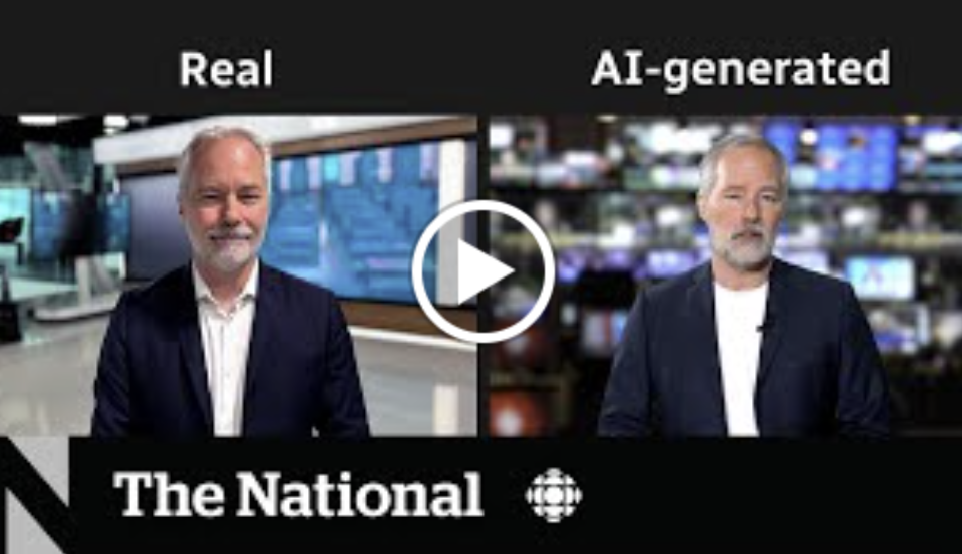

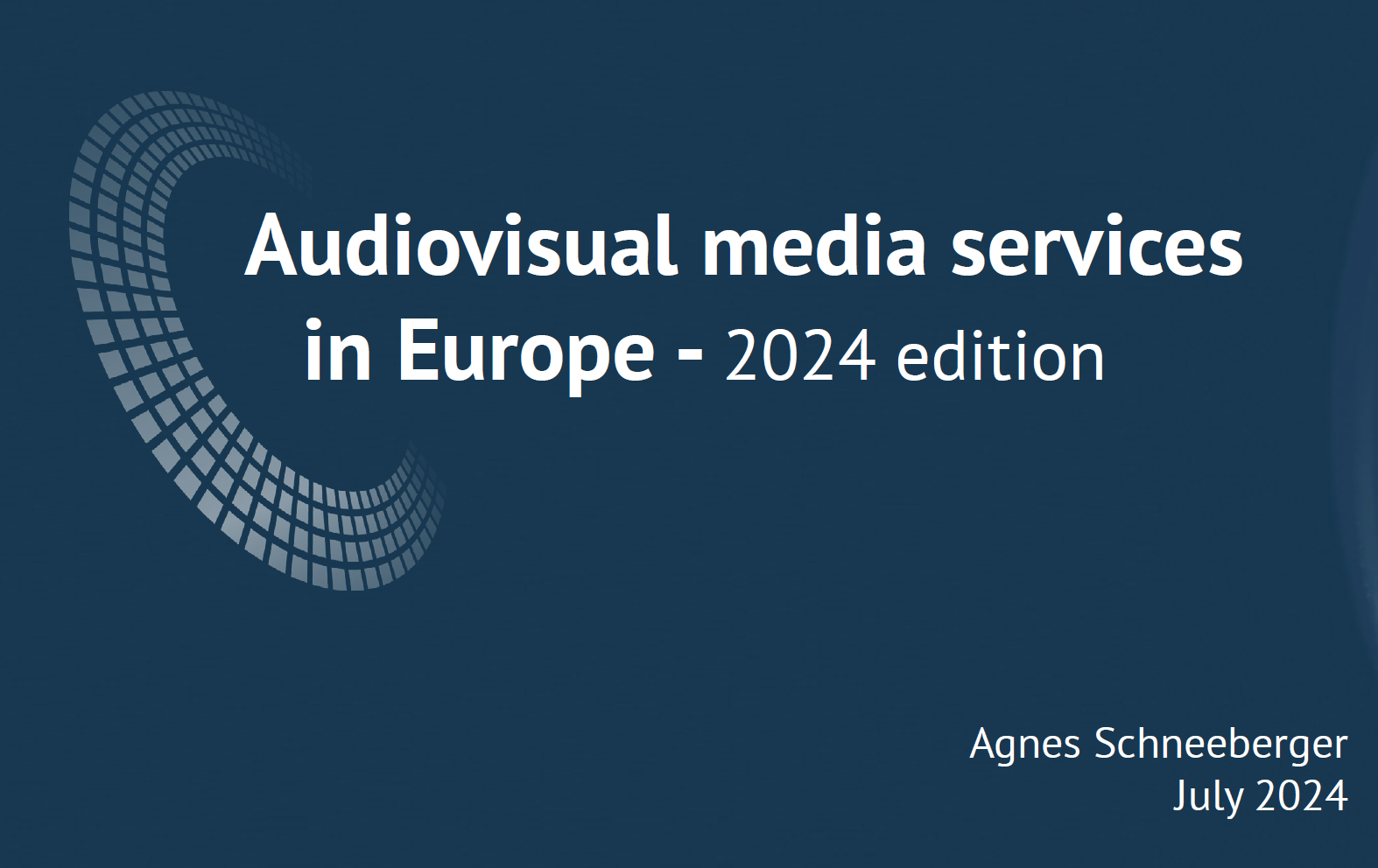
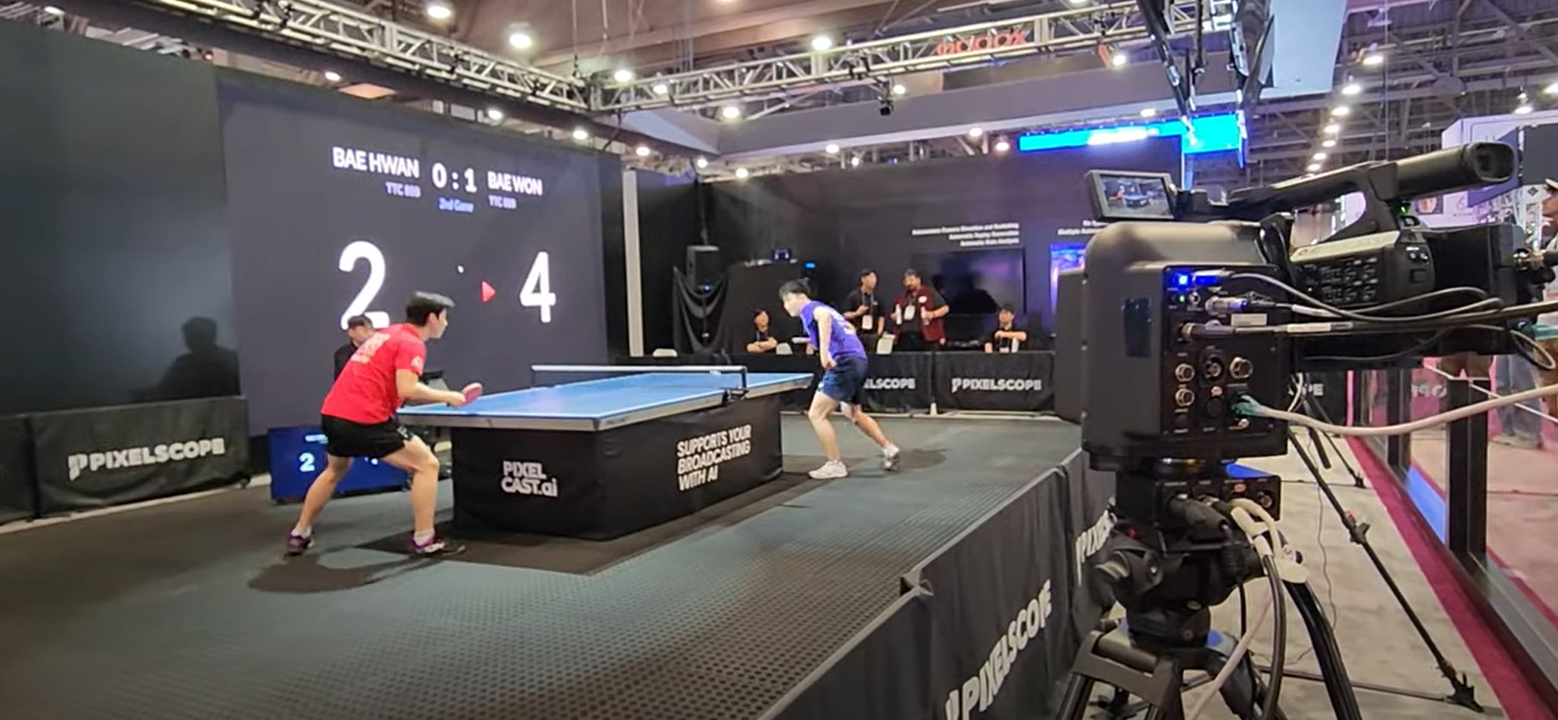
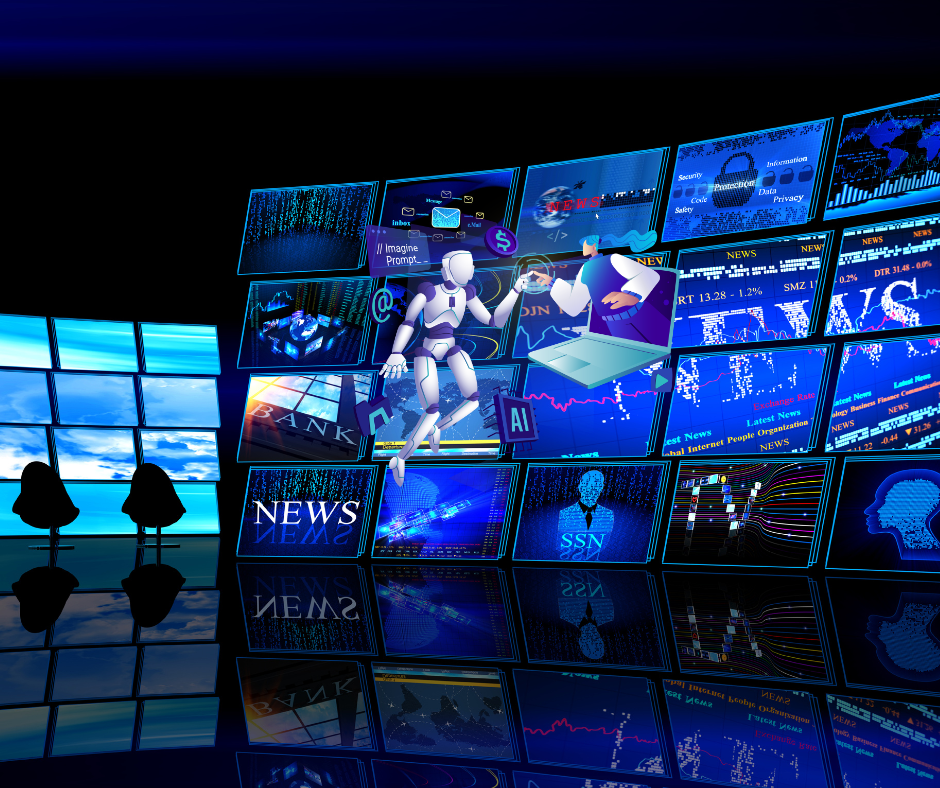
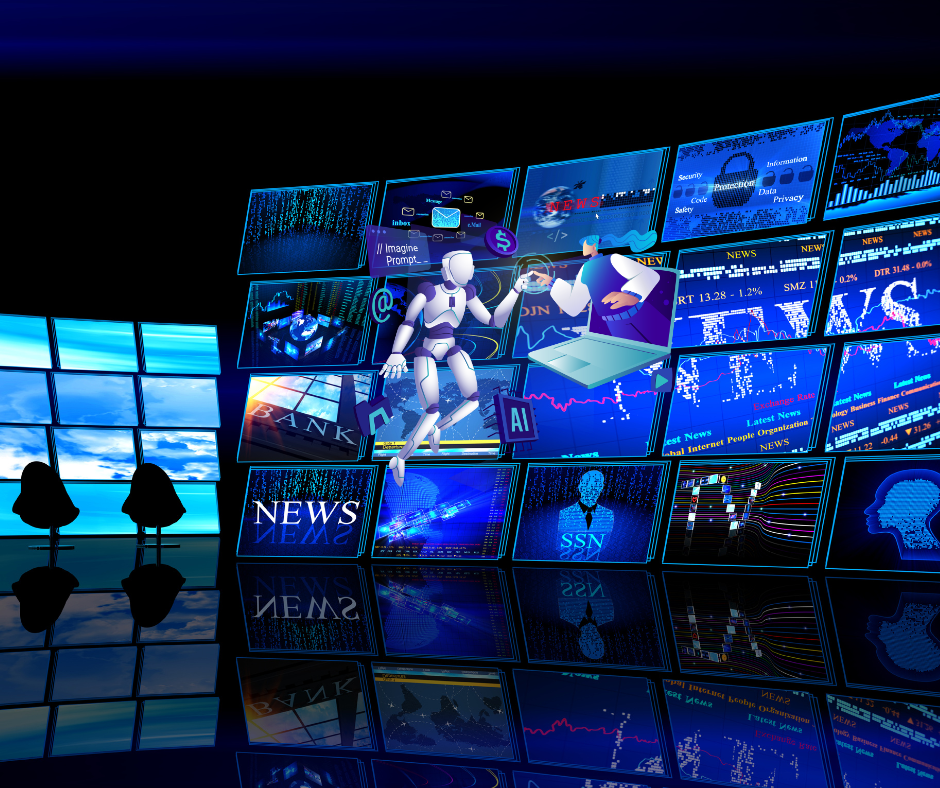
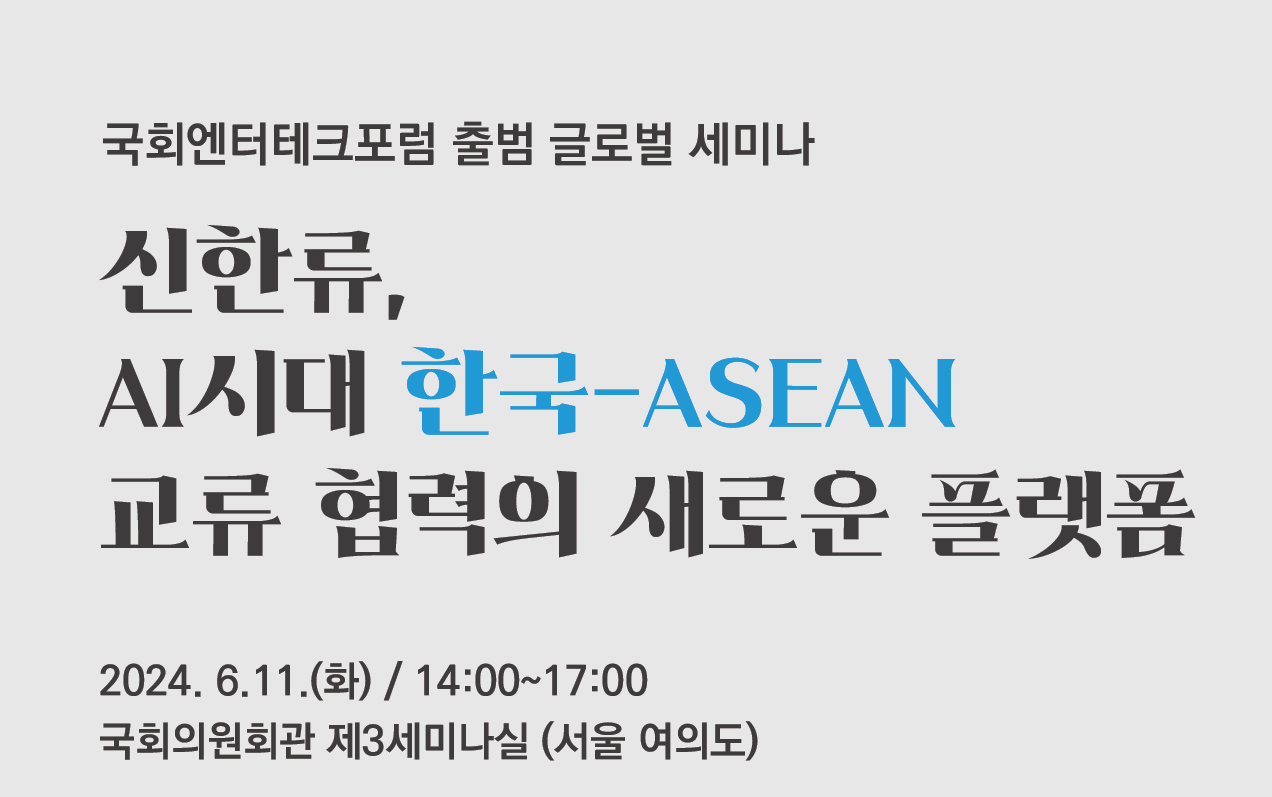
![[Report]Ofcom 'Future of TV Distribution'](https://storage.googleapis.com/cdn.media.bluedot.so/bluedot.directmedialab/2024/05/guwd3g_202405122027.png)
![[PT]NAB2024 the Era of conversational AI](https://storage.googleapis.com/cdn.media.bluedot.so/bluedot.directmedialab/2024/05/qc7q4b_202405081558.png)
![[PPT-Report]대화형 AI의 시작 "NAB2024"](https://storage.googleapis.com/cdn.media.bluedot.so/bluedot.directmedialab/2024/05/yhln3l_202405081556.png)